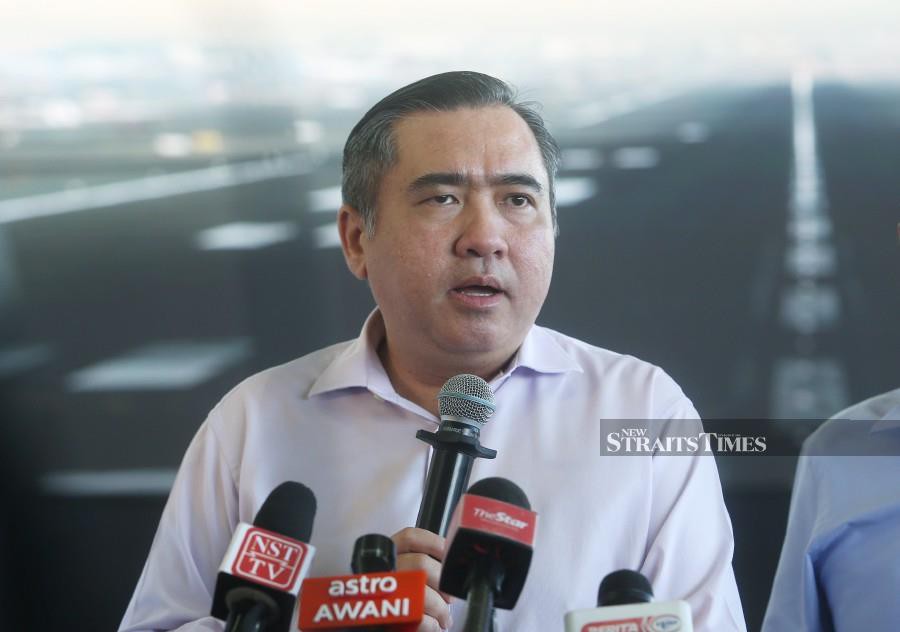PUTRAJAYA: The Asean Framework Agreement on the Facilitation of Goods in Transit (AFAFGIT) will be implemented starting Jan 1.
Transport Minister Anthony Loke said the AFAFGIT will facilitate the movement of goods in transit in Asean member states.
"The implementation of AFAFGIT will change Malaysia's logistics landscape drastically, whereby goods and commercial vehicles can move seamlessly among the Asean member countries with minimal goods and vehicle clearance procedures at the borders.
"This is expected to boost Malaysia's total trade, particularly with the Asean member states.
"In addition, the AFAFGIT implementation will provide opportunities for local logistics companies to penetrate the Asean market and subsequently enhance the country's productivity and competitiveness," he told reporters after chairing the National Logistics Task Force (NLTF) meeting here today.
Loke said for the operationalisation of AFAFGIT, the government had gazetted two subsidiary legislations; the Land Public Transport (International Circulation) (Asean Cross-Border Goods Vehicle) Regulations 2023 and the Commercial Vehicle Licensing Board (International Circulation) (Asean Cross-Border Goods Vehicle) Rules 2023 on Monday.
"The movement of registered foreign goods vehicle between the Asean member countries requires a permit known as the Asean Goods Vehicle Cross-Border (AGVCB) permit.
"In this regard, Asean member states have appointed a competent authority at the domestic level to issue the AGVCB permit," he said.
Loke said, in line with AFAFGIT, the domestic competent authority is entitled to issue 500 AGVCB permits subject to terms and conditions.
"The number of permits can be increased with the agreement of all Asean member countries, if necessary.
"The Land Public Transport Agency (APAD) has been appointed the competent authority for issuing AGVCB permits in Malaysia. Malaysian transport operators who fulfil the criteria can apply for AGVCB permits online from APAD, starting from Jan 1."
Loke said to support the operationalisation of AFAFGIT, the customs authorities of the Asean member countries will use the Asean Customs Transit System (ACTS) for goods declaration and to regulate the movement of goods in transit.
"The ACTS is an electronic software system that has been developed to support the operationalisation of the AFAFGIT, which enables a single vehicle, single guarantee and single
customs declaration, to facilitate the seamless cross-border movement of goods in transit among Asean member countries, from the country of origin to the country of destination."
Loke said the Customs Department was the custodian to operate the ACTS system in Malaysia.
"The operationalisation of AFAFGIT will commence in Peninsular Malaysia in advance starting January next year, whilst it will only be implemented in Sabah, Sarawak, and Labuan after the accession of Brunei, Indonesia, and the Philippines into the ACTS."
Asean member countries signed the AFAFGIT to facilitate transport and trade in supporting the implementation of the Asean Free Trade Area (AFTA) on Dec 16, 1998.






